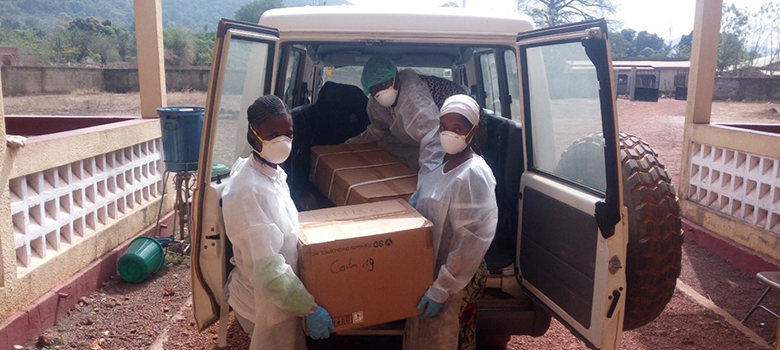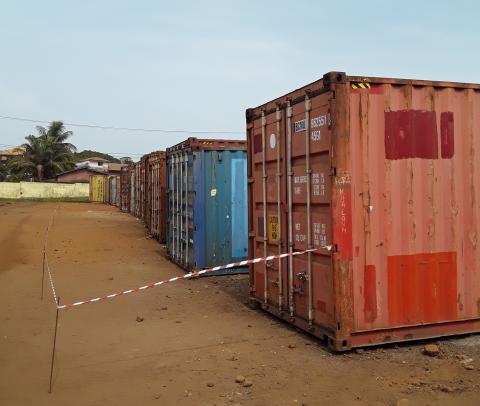Aiming to unclog its health supply chain, the Ministry of Health requested support from USAID, through the Global Health Supply Chain Program-Procurement and Supply Management (GHSC-PSM) project, to support the identification, collection, transport, and storage of the waste until it can be exported for disposal under internationally recognized procedures.
Prepared with safety training, process maps, collection procedures, protective equipment, and vehicles, 92 health workers and 42 handlers conducted a physical inventory of waste at more than 500 medical stores, hospitals, clinics, and other health facilities. They then collected and routed the waste to storage sites in each region for consolidation and transport to a central site in Conakry, the nation’s capital. Waste collected for disposal included expired or otherwise unusable products like antimalarial medicines; contraceptives used in reproductive health programs; various commodities for support of maternal, newborn, and child health; and personal protective gear used during the Ebola outbreak.
Different types of waste require different disposal methods. Under the supervision of the General Inspectorate of Health and the National Pharmacy and Drug Directorate, GHSC-PSM provided a method for sorting and packaging waste by categories according to disposal methods, including pharmaceutical waste, medical waste, chemicals, solids, and liquids.
All told, nearly 150 tons of medical and pharmaceutical waste — about the same weight as 90 African hippos — was collected, sorted, weighed, and repackaged in appropriate packaging and containers. The National Environmental Directorate next processed and approved a dossier to export the waste for incineration and disposal abroad.

